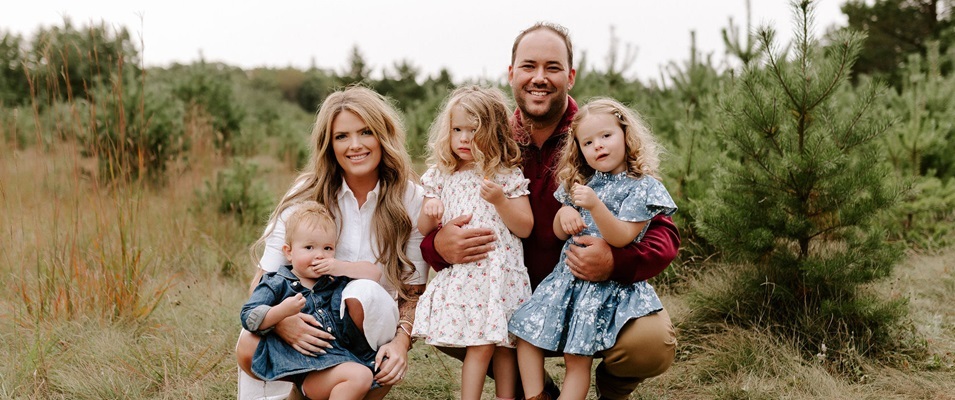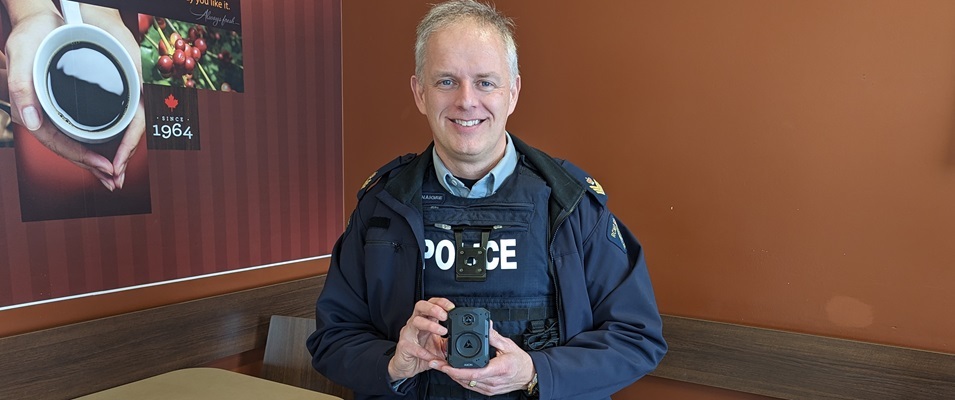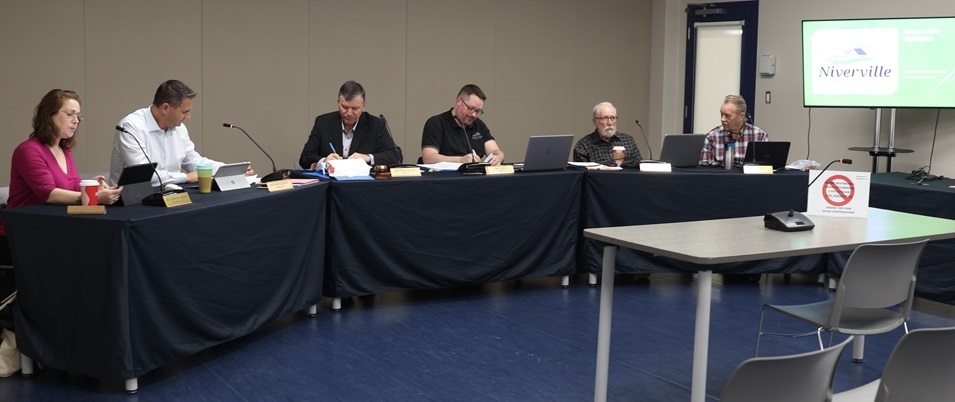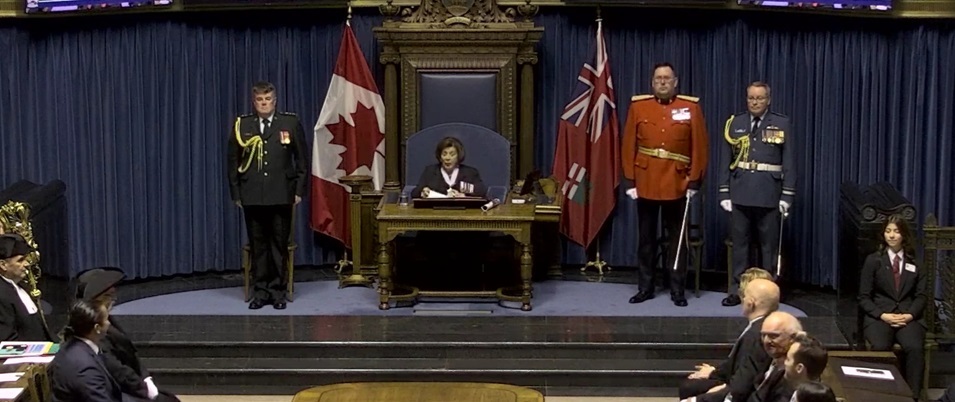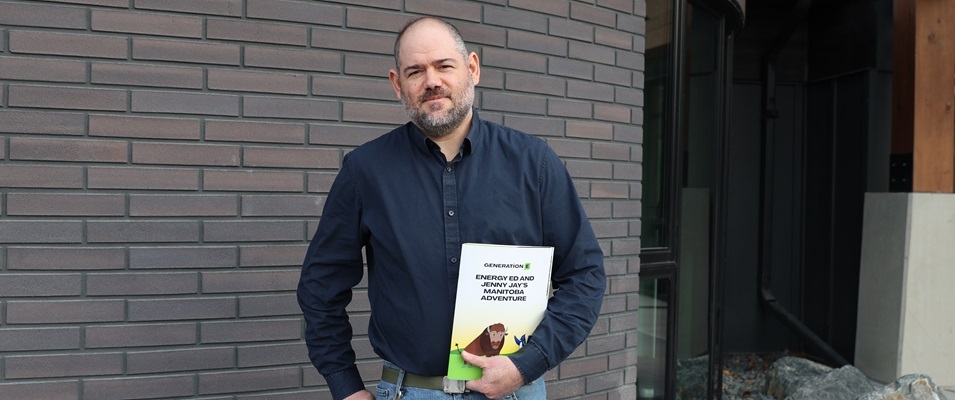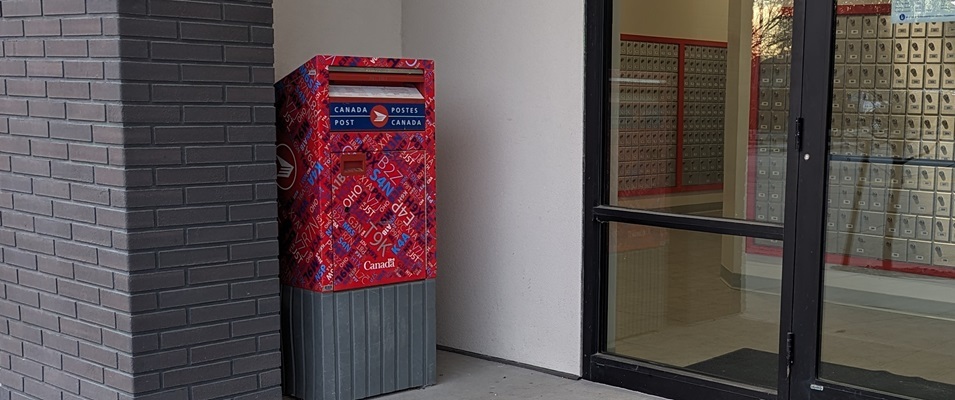
For years, Bonny Martens’ son Barrett had been plagued by stomachaches. Not the kind you get from a disease or virus. The kind you get when you never feel at ease, when you’re nervous, scared, or unhappy. When you can’t stand the idea of getting out of bed and going to school.
Even in this so-called gentler age we live in, the odds are stacked against a kid like Barrett Martens in the schoolyard. He has Asberger’s Syndrome, he suffers from ADHD, and his mom says he was being victimized by bullies. It got so bad that Bonny and her husband Jeff made the decision to pull Barrett out of school for a while in Grade Eight.
“I just felt he needed a mental break,” says Bonny. “He missed about four to six months.”
She worried her son wouldn’t make it through school, that she would never see him in a cap and gown smiling for her camera with a high school diploma in his hands.
“When we came to the end of Grade Ten, we knew we had to try something different,” she says.
That something different was the Turning Point Learning Program Alternative Education Classroom at Niverville Collegiate Institute. If you know of the program, you’ve probably heard it referred to as “Alt Ed.” And it’s a big part of the reason Barrett Martens’ stomach doesn’t hurt anymore.
The Turning Point Learning Program (TPLP) is in its fifth year at NCI. The program is designed to help Grades 11 and 12 students who are struggling to varying degrees in the traditional classroom setting. Alt Ed offers a more individualized approach to learning, with a far lower student-to-teacher ratio and a lot more hands-on learning.
Susanne Kwiatkowski teaches the TPLP class in Niverville, and she’s been spearheading the program since day one.
“The idea came out of the States,” says Kwiatkowski. “We thought it was something that was worthwhile.”
The program had humble beginnings. The first year, their classroom was a corner of the library and they had trouble finding kids to be part of the program.
“In the early years we were tapping shoulders,” Kwiatkowski says. But word quickly spread that this program could help students who were having trouble finding their academic footing.
Bethany Visser was doing okay. She wasn’t a troubled kid. Her teachers liked her, she had friends, and she was pulling in perfectly mediocre marks. Just the kind of kid who could slide through her school years relatively unnoticed. Except one day, her Grade Ten class was herded into the band room. At the front of the room was Susanne Kwiatkowski, and she was there to talk about the Alt Ed program. After that day, school would never be the same for her.
“After hearing Mrs. Kwiatkowski talk, I knew it was something I wanted to be a part of,” says Visser.
After convincing her sceptical parents that Alt Ed was her best chance at academic success, Visser was ready to join NCI’s second Turning Point class.
“The biggest thing is they took us through tests to determine our learning styles,” Visser adds. “Turns out I’m a kinesthetic learner.” In layman’s terms, this means that she learns best by doing something rather than seeing it or hearing about it. It’s a common trait of kids who excel in Alt Ed.
The students even spend part of their time working at local businesses or volunteering in the community. They gain hands-on rather than theoretical experience.
“They’re learning the same stuff, just presenting it in a different way,” says Bonny Martens. “Not trying to make him learn the way everyone else does. Meeting them where they’re at.”
Kwiatkowski agrees. “This program is about alternative ways of learning,” she says. “Not an alternative curriculum. We do the same curriculum, we just get there differently.”
The other big advantage is the amount of time the teachers can spend with individual students. Visser says that she went from a class of 30 students to a class of three when she joined the program.
Martens says that the kids can’t help but learn. “Barrett takes math with three kids. They just keep going till you get it,” she says.
All involved say that students in Alt Ed have sometimes faced a stigma in school caused by a lack of understanding about how the program works. Bonny Martens says that her son “catches a lot of flak,” because some kids believe the Alt Ed program is an easier academic ride.
Kwiatkowski credits the bravery of the kids who participated in the program in the early years for putting themselves out there.
Visser says she just worked through any doubts people had about the TPLP. “I just worked really hard to prove I wasn’t a troubled kid.”
Everybody involved in the program—except Susanne Kwiatkowski—will tell you that Susanne Kwiatkowski is the hero of this story.
“Absolutely,” says Visser. “Mrs. K cared so genuinely for each of us. Not just academically, but about your home life too. She was constantly calling your parents. Seeing how that relationship is going.”
“They all have a common love for the teacher,” adds Martens. “Everybody loves Mrs. K.”
Martens tells the story of a couple of kids who were going to skip their graduation ceremony. Mrs K would have none of it.
“We worked too hard to get you here,” Kwaitkowski told the students. In the end, they attended the ceremony of course.
Martens says that some of these kids might not have finished school if it wasn’t for her.
For her part, Kwaitkowski says that’s it the relationships with her students that bring her the most satisfaction. “I see a huge amount of impact. Kids seeing they have academic value again. They had pigeonholed themselves. ‘I’m not a good student. I’m not smart.’ This program really can change their perspective.”
When Kwaitkowski speaks, you can tell just how proud she is of her students. “I love this job so completely. We get to see them grow. They stay in touch with me. I get to be able to be part of their lives. They’ll pop in, shoot me a text. They have a connection to the school, to me, to the program. What more could you want?”
One day, Barrett Martens will be one of those kids texting. He’s finishing Grade 11 now and will be graduating next year. His mother is more than a little pleased. You can hardly blame her for bragging a bit.
“We went from just trying to get him to pass to he’s getting 70s and 80s in everything,” Martens says. “There have been times when I wondered if he was going to get through school.”
Her son is more social now. He’s formed friendships he didn’t have before. He doesn’t sleep as much and his stomachaches are a thing of the past.
Bethany Visser graduated from the TPLP and Niverville Collegiate in 2015. She’s currently taking a four-year sociology program at Providence University College. At her graduation, she won awards for math and English, something she couldn’t have imagined when she was bringing home 60s in Grade Ten.
“I’m so grateful for the program” Visser says.
What Visser really wants to do with her life is become an author. She says that Susanne Kwiatkowski knew this and always made time for Bethany to work on her book in class. Though Visser has put that project on hold to concentrate on her studies, she remembers clearly what the book was about.
“A girl who wasn’t doing so well,” she explains, “going out and finding a better life.”





